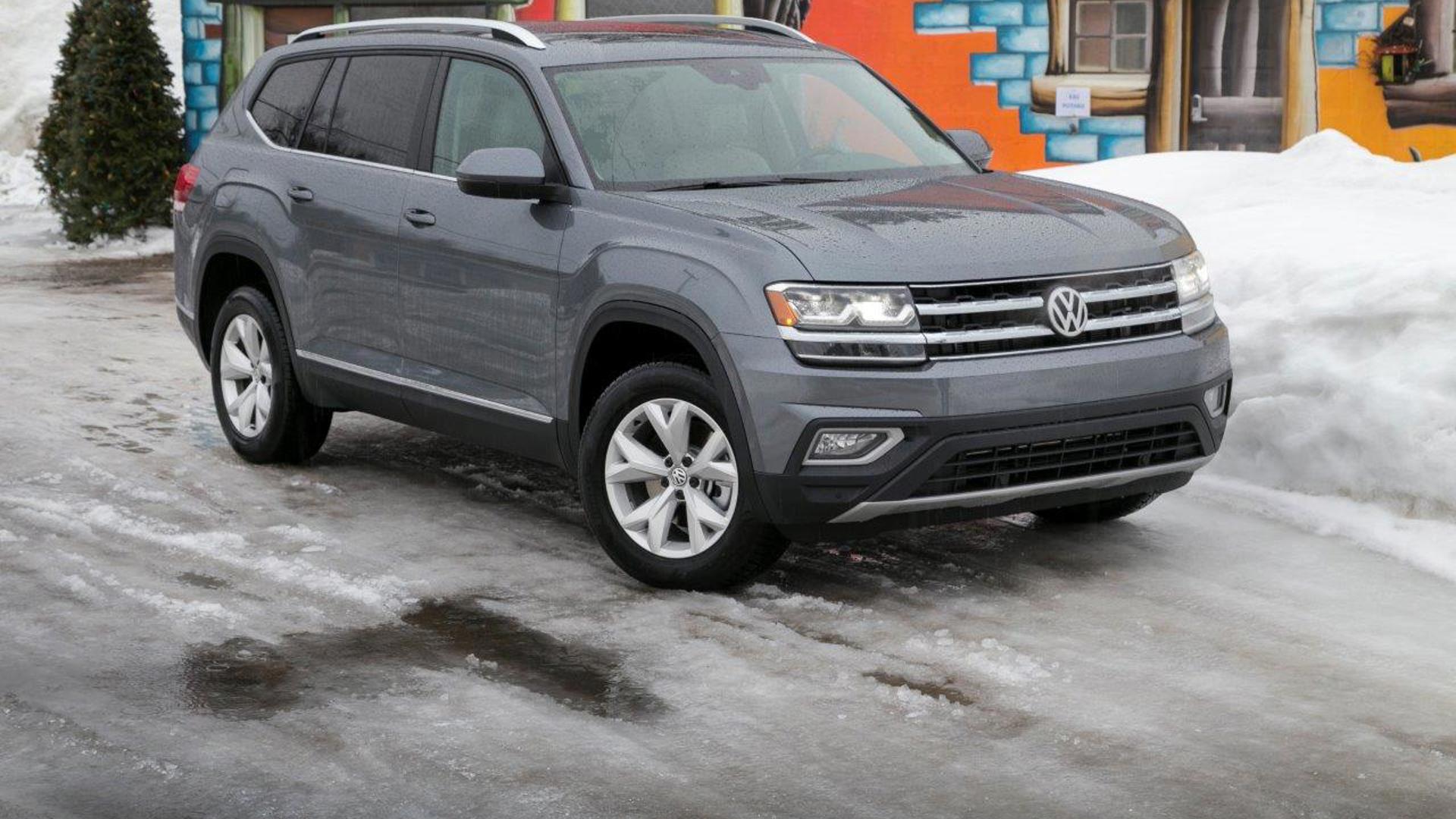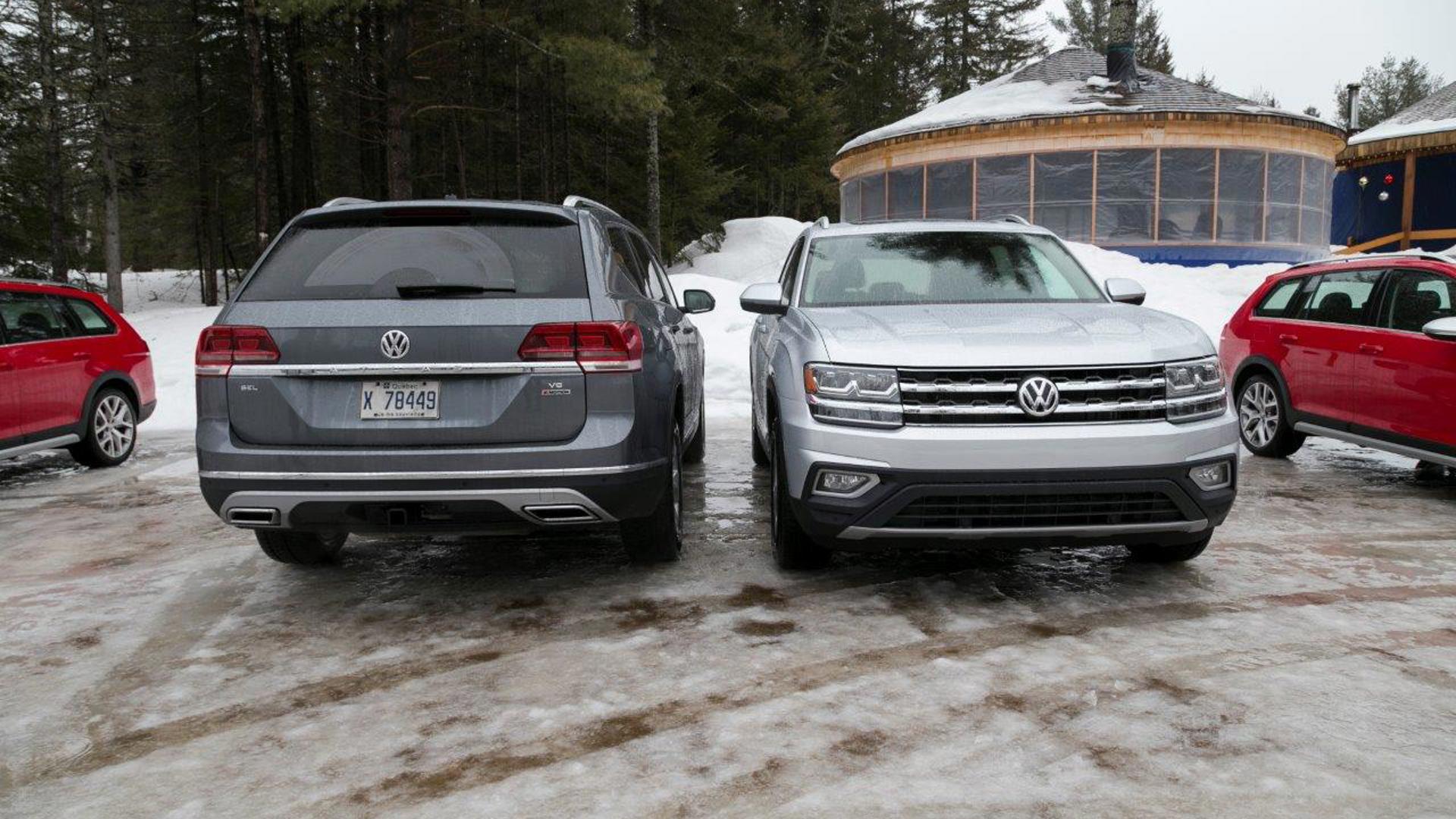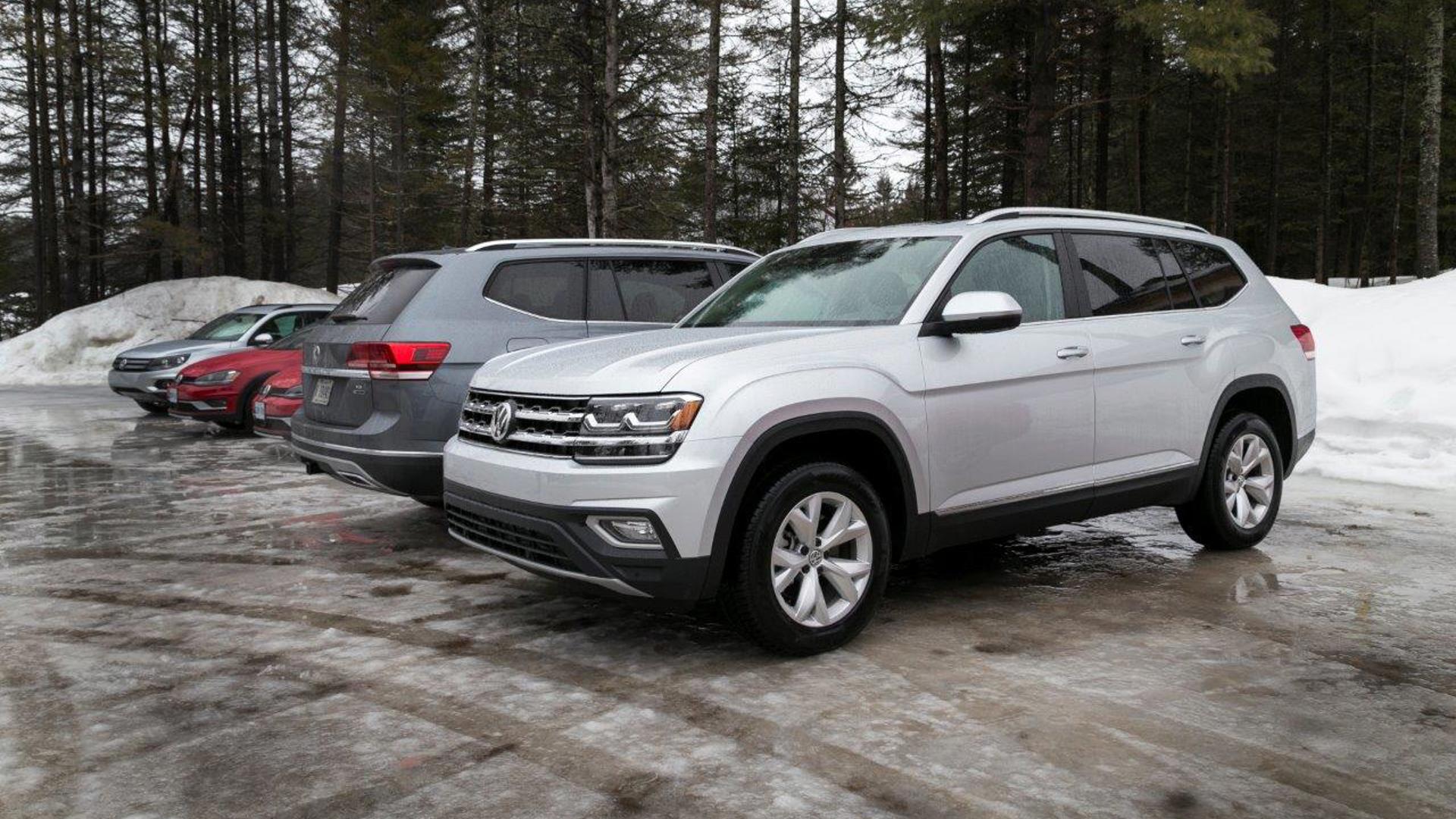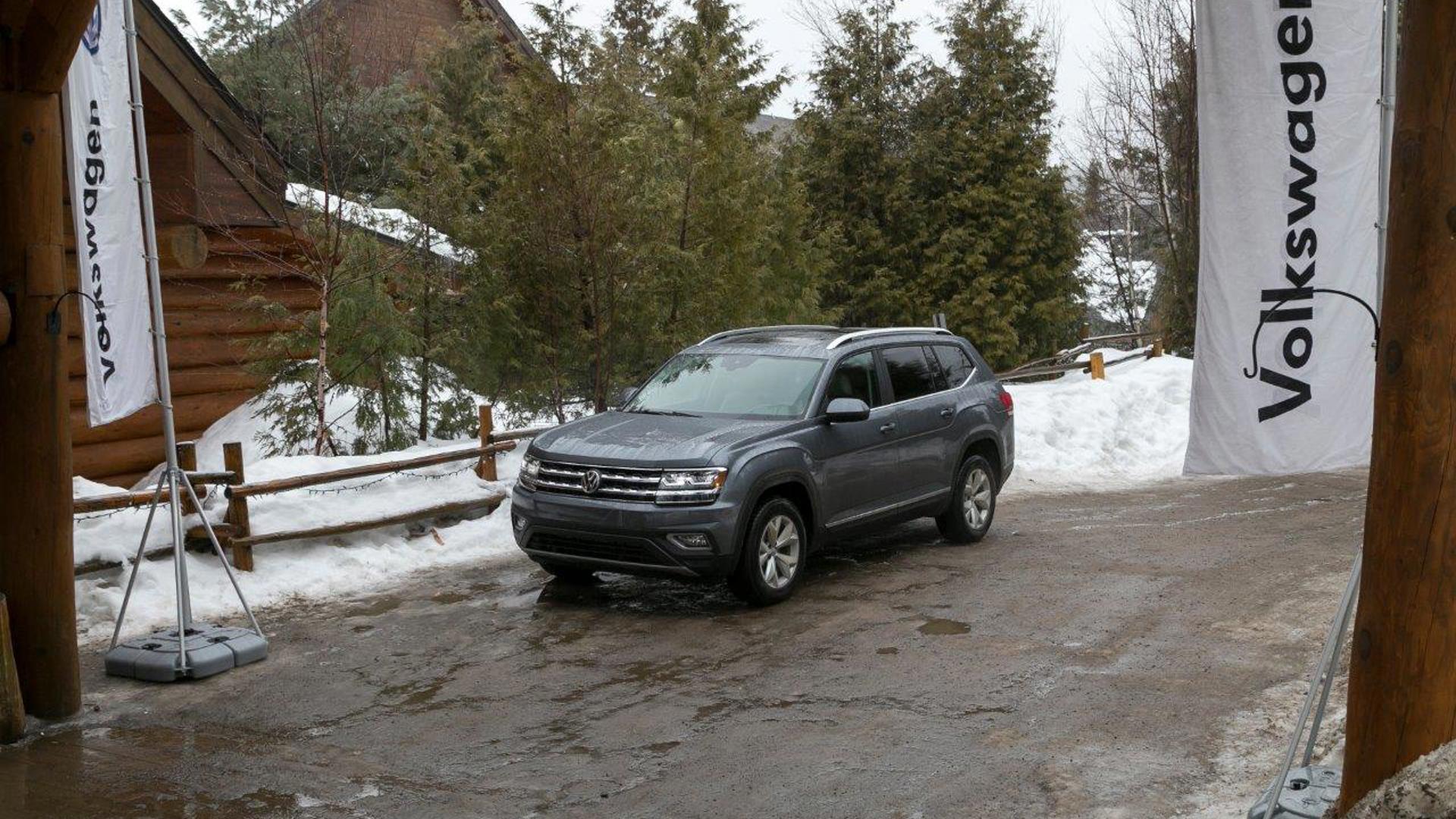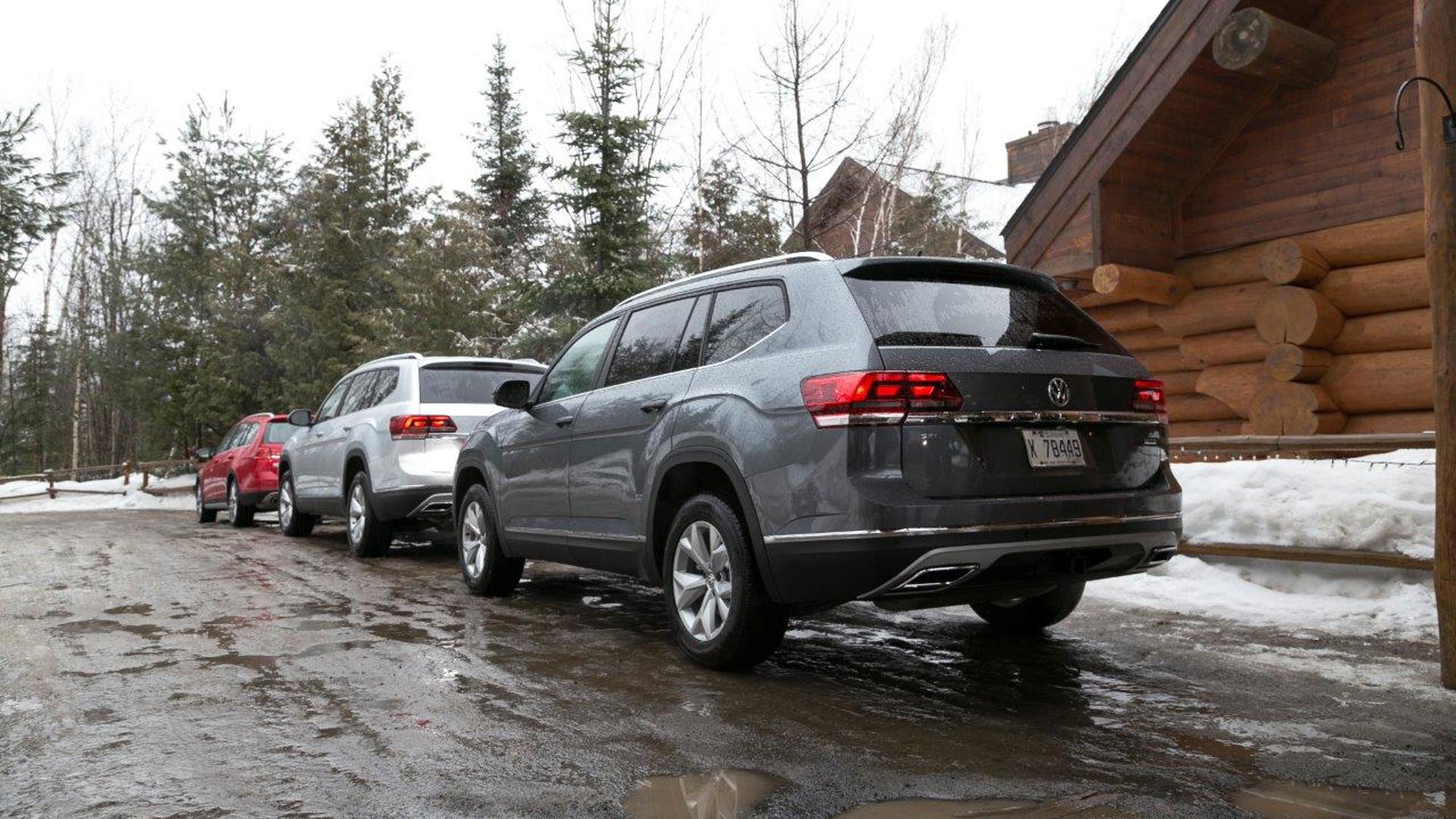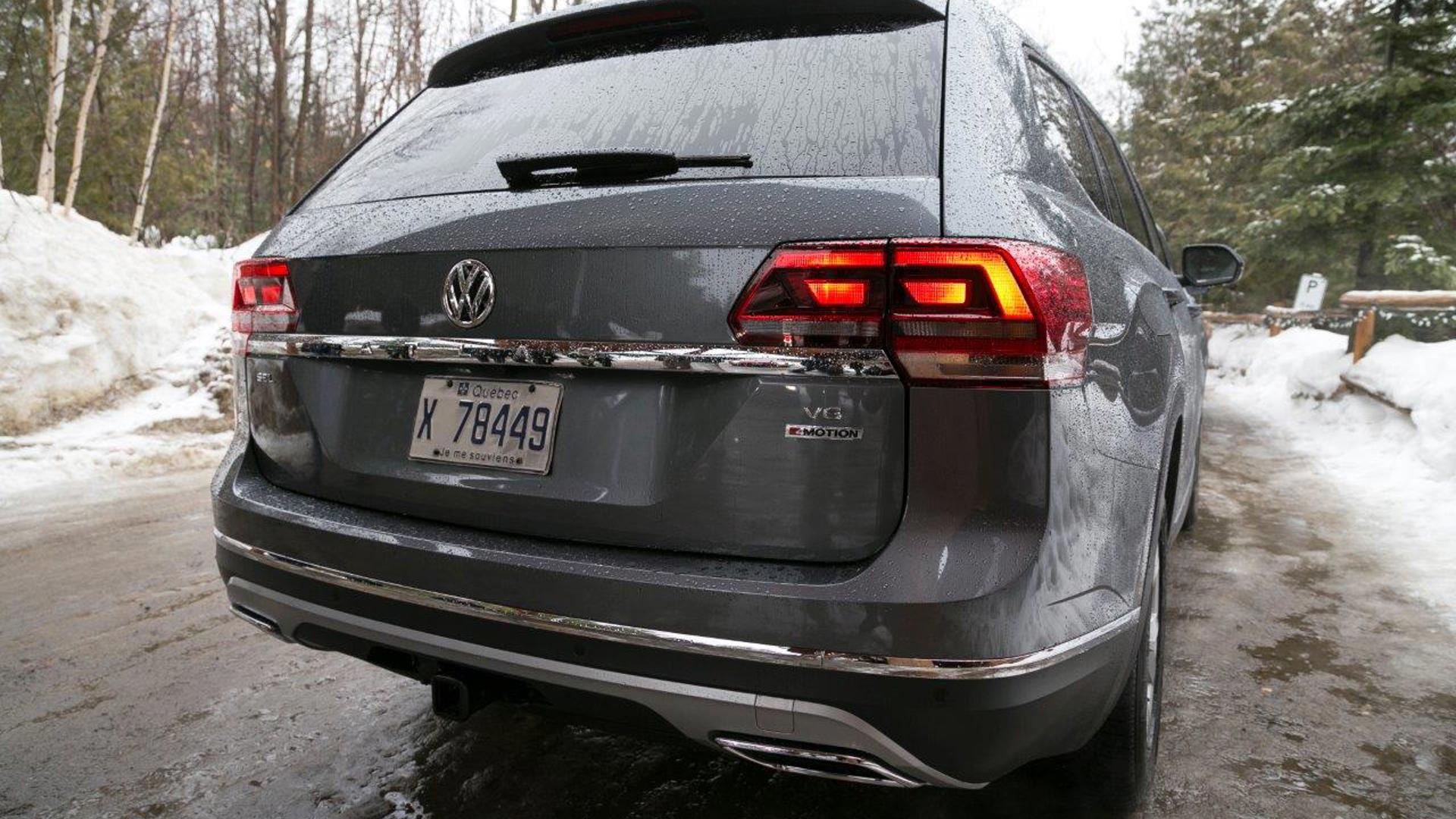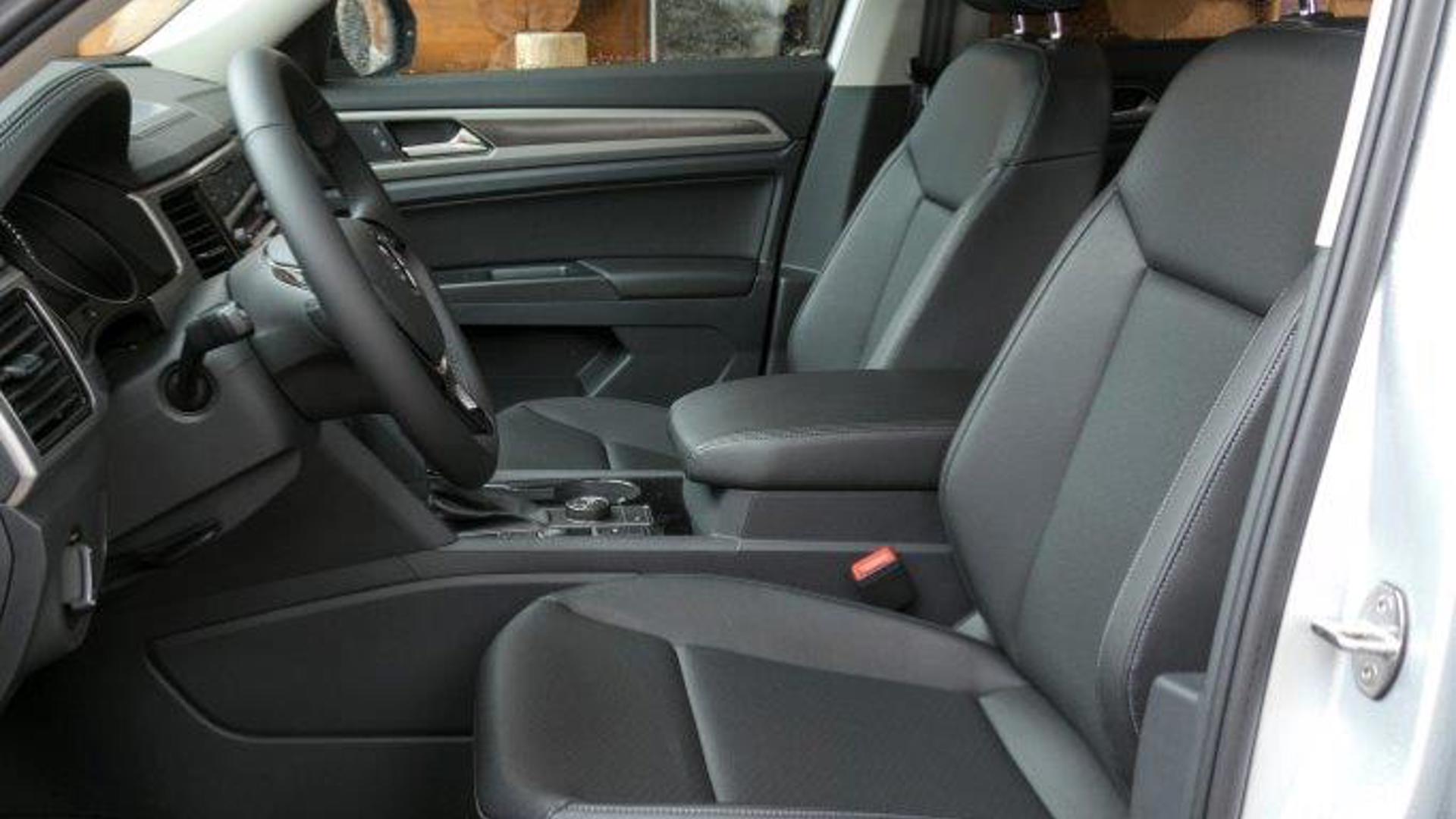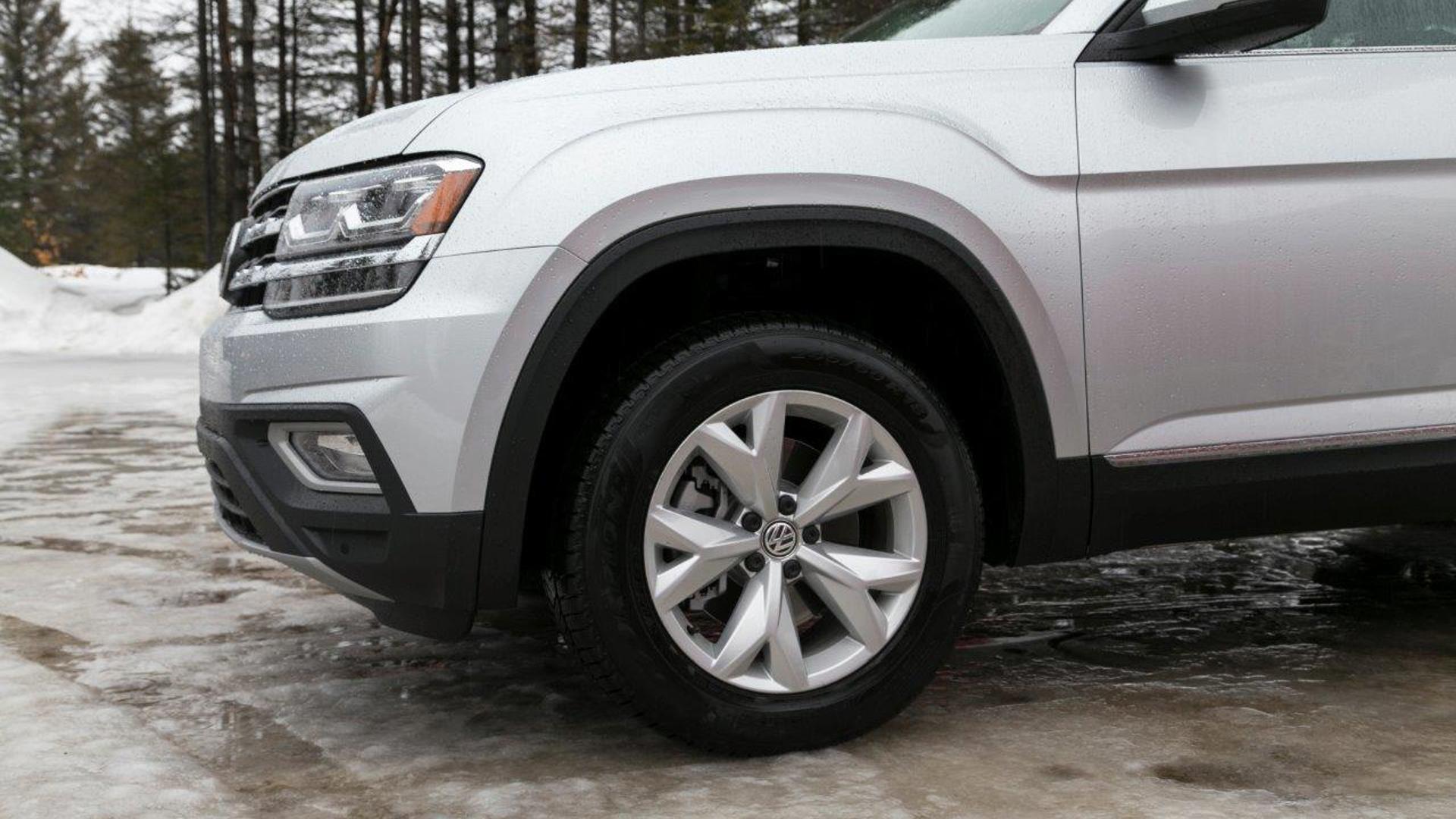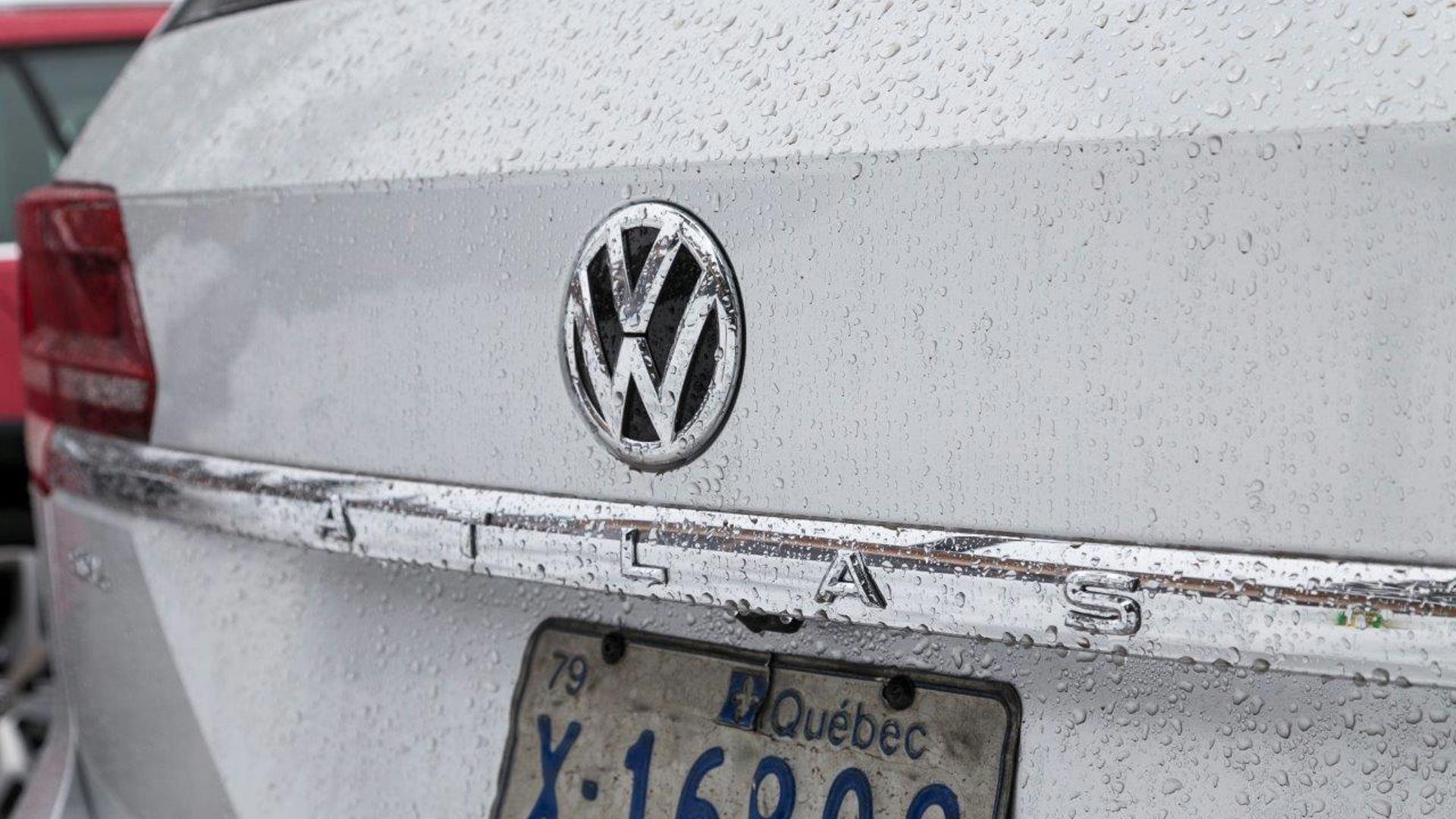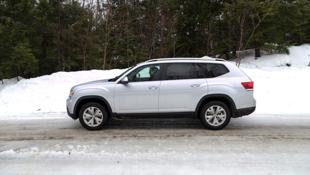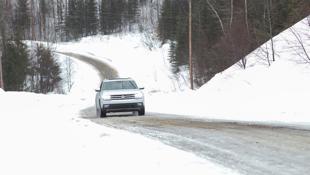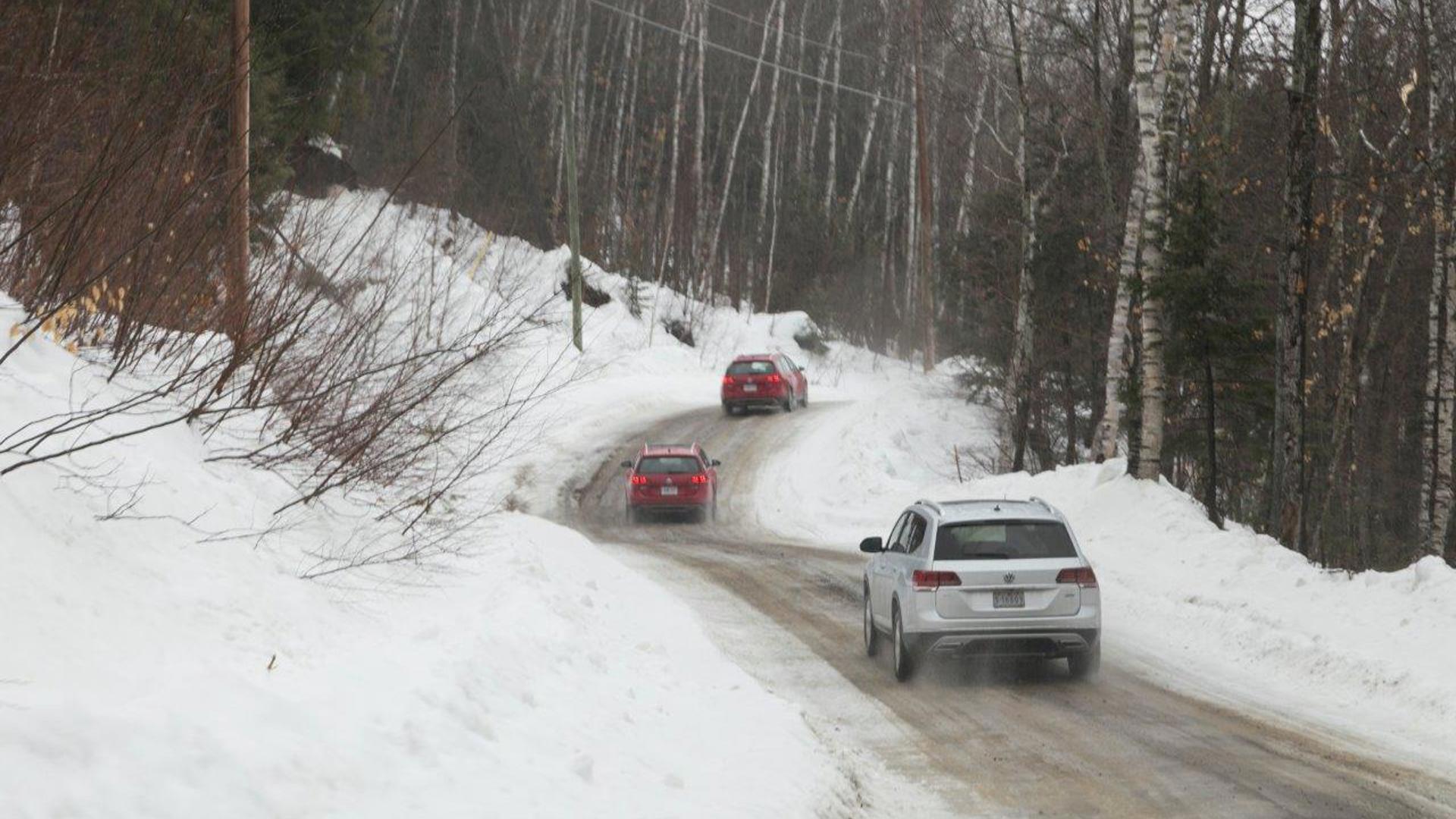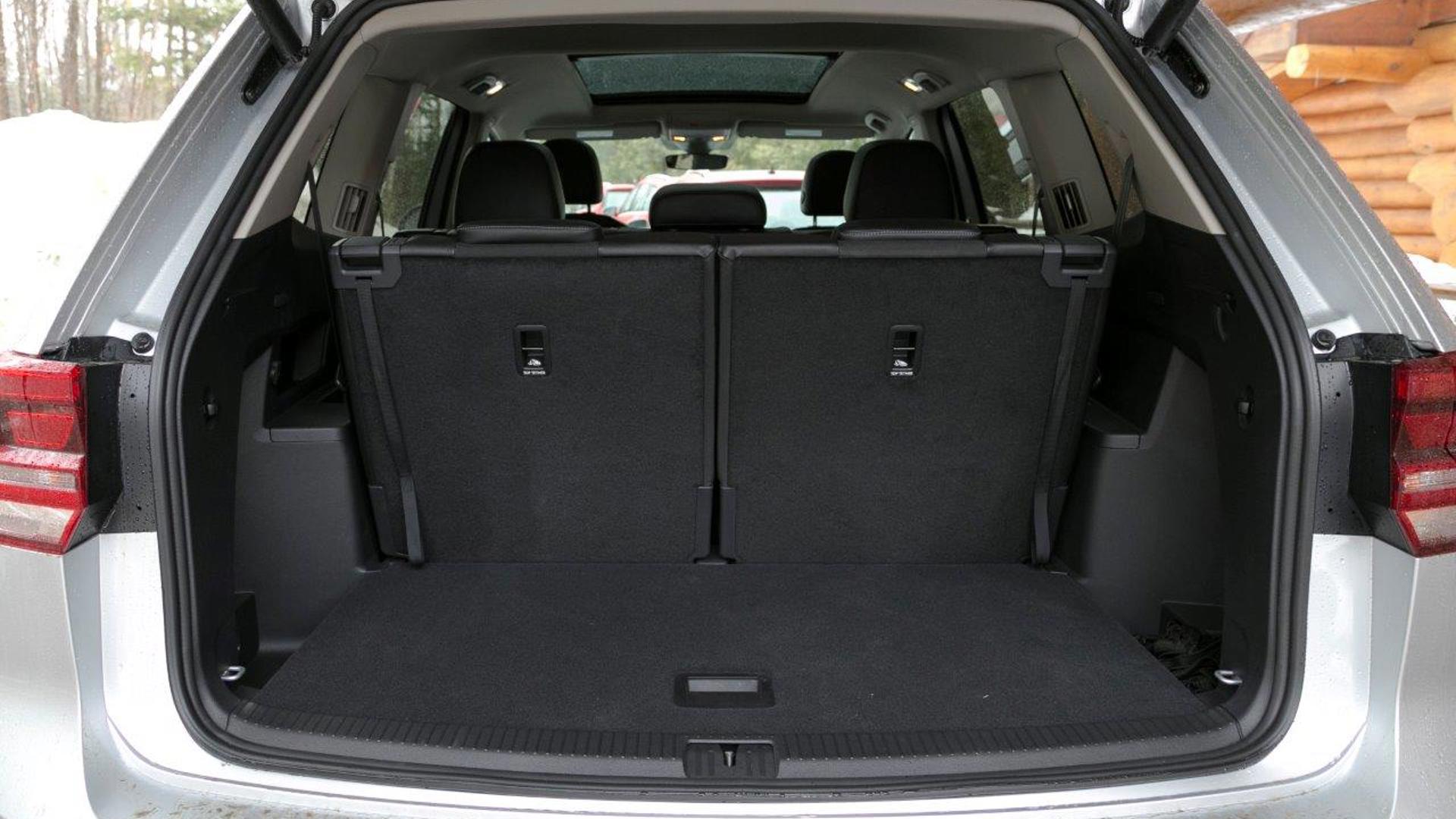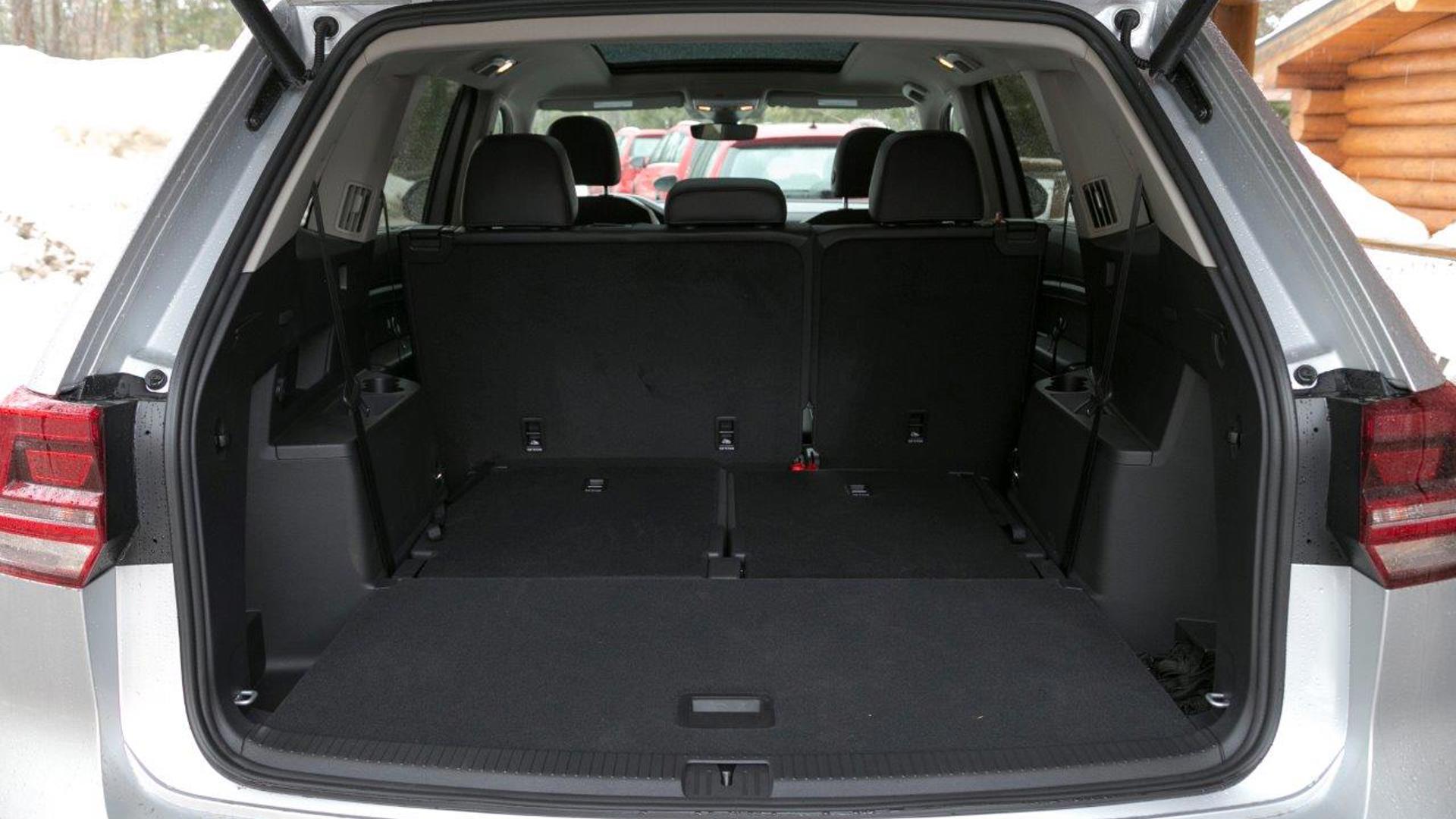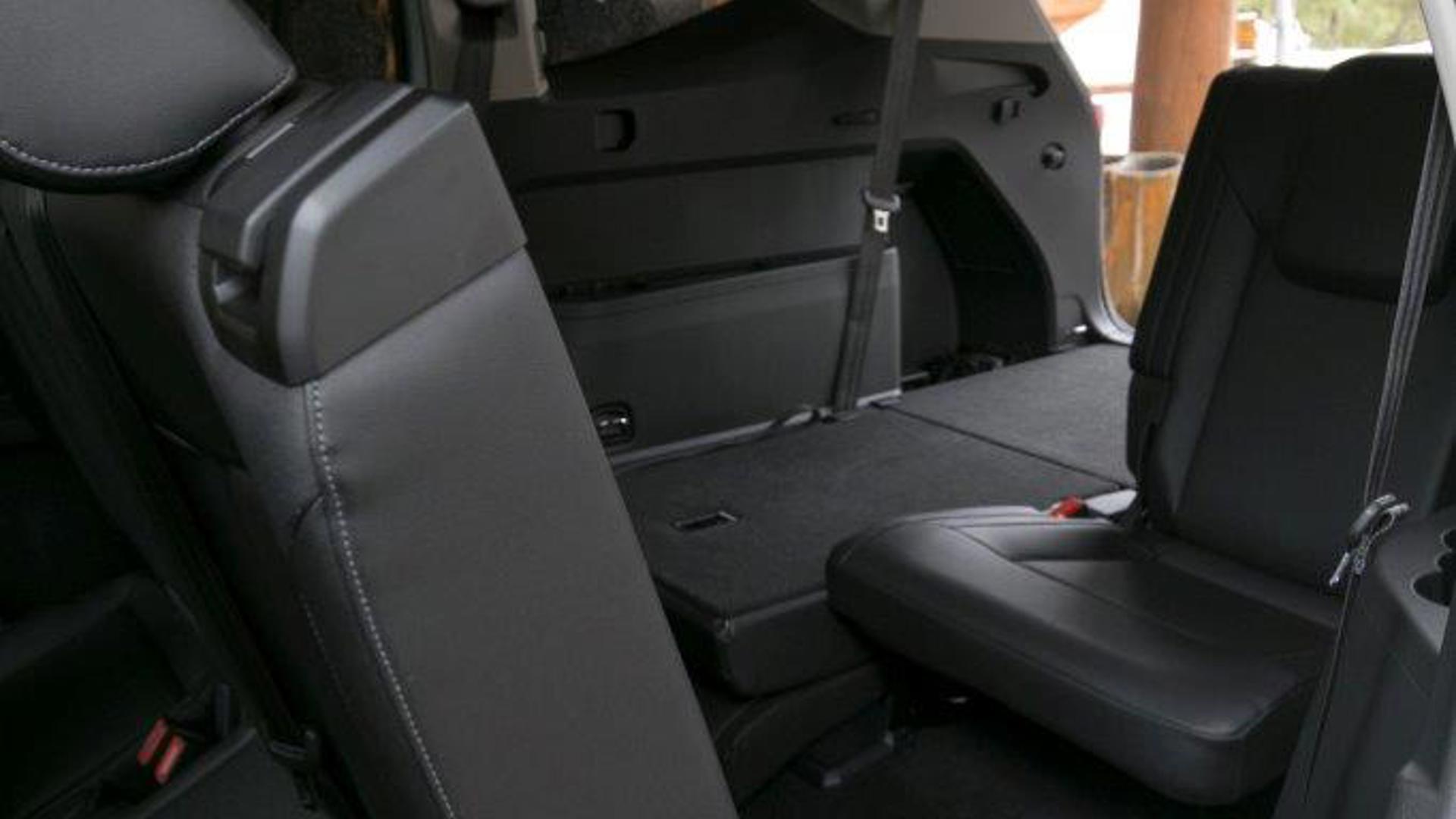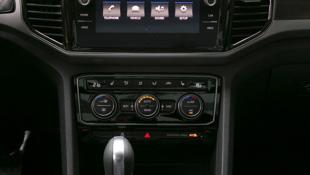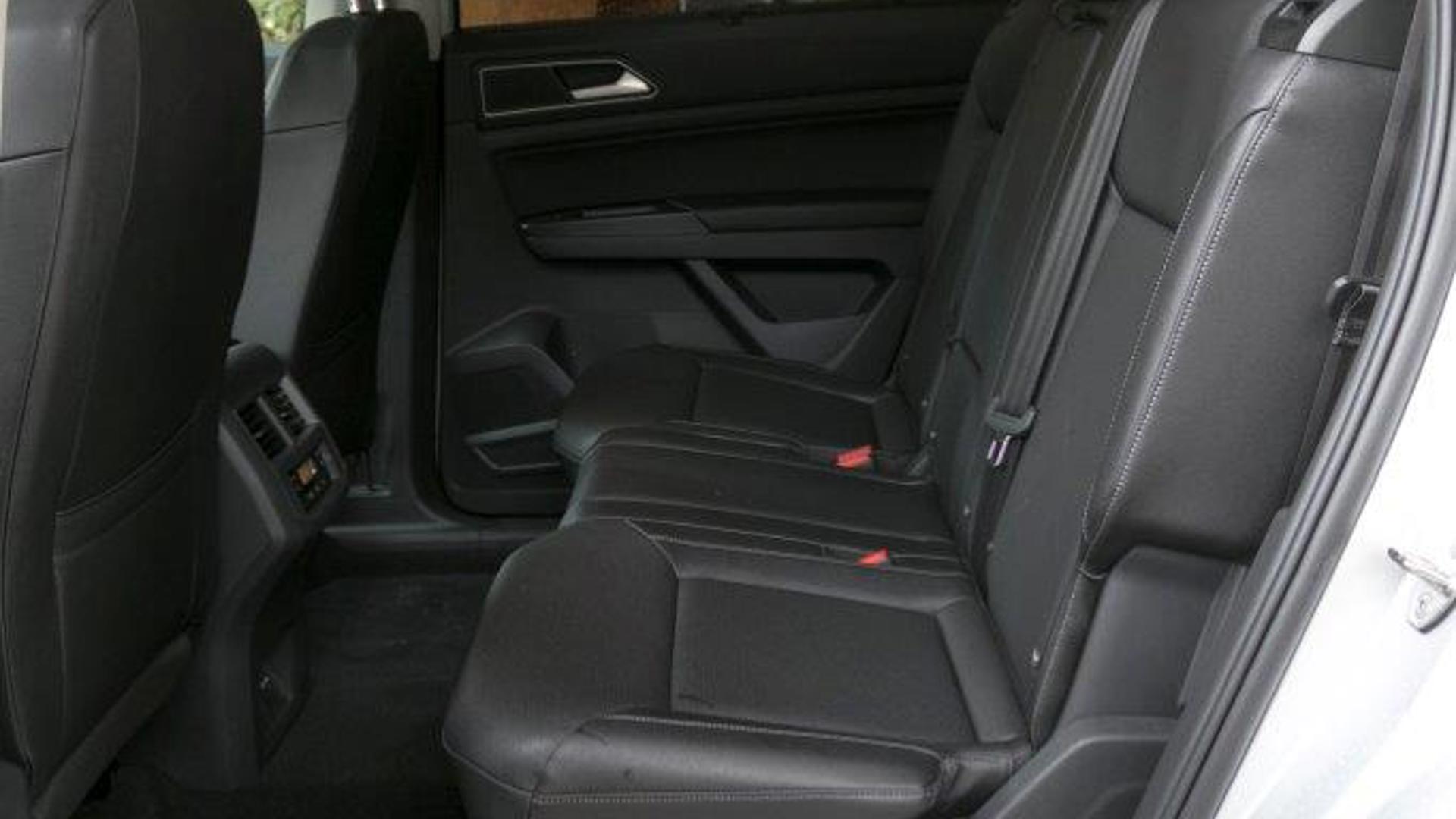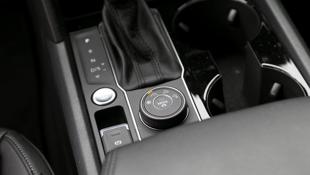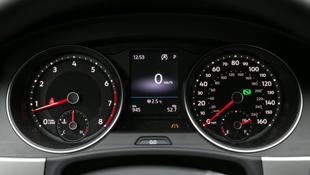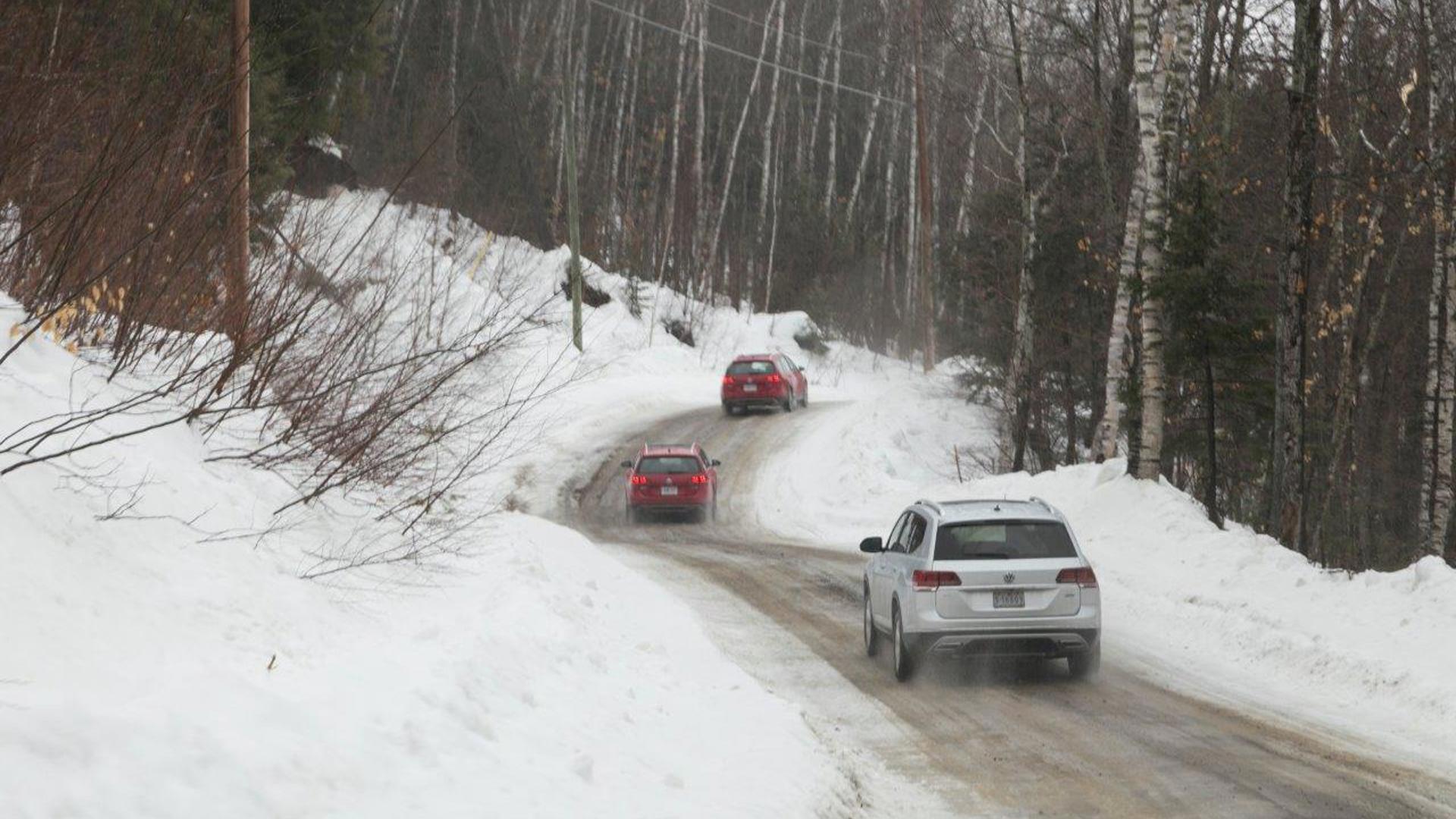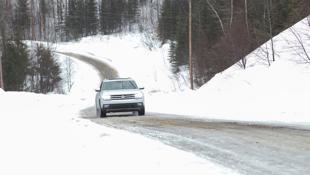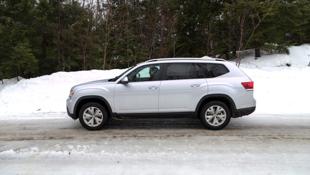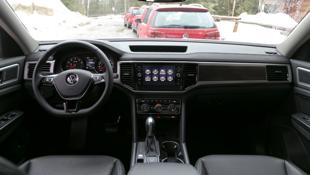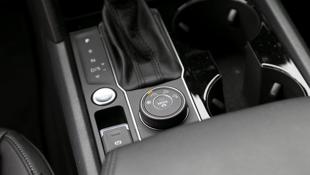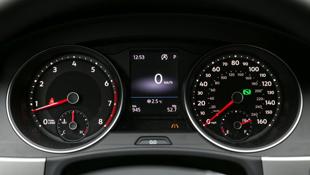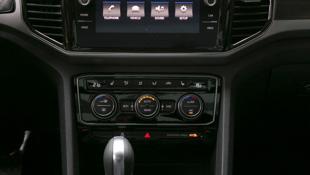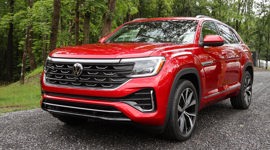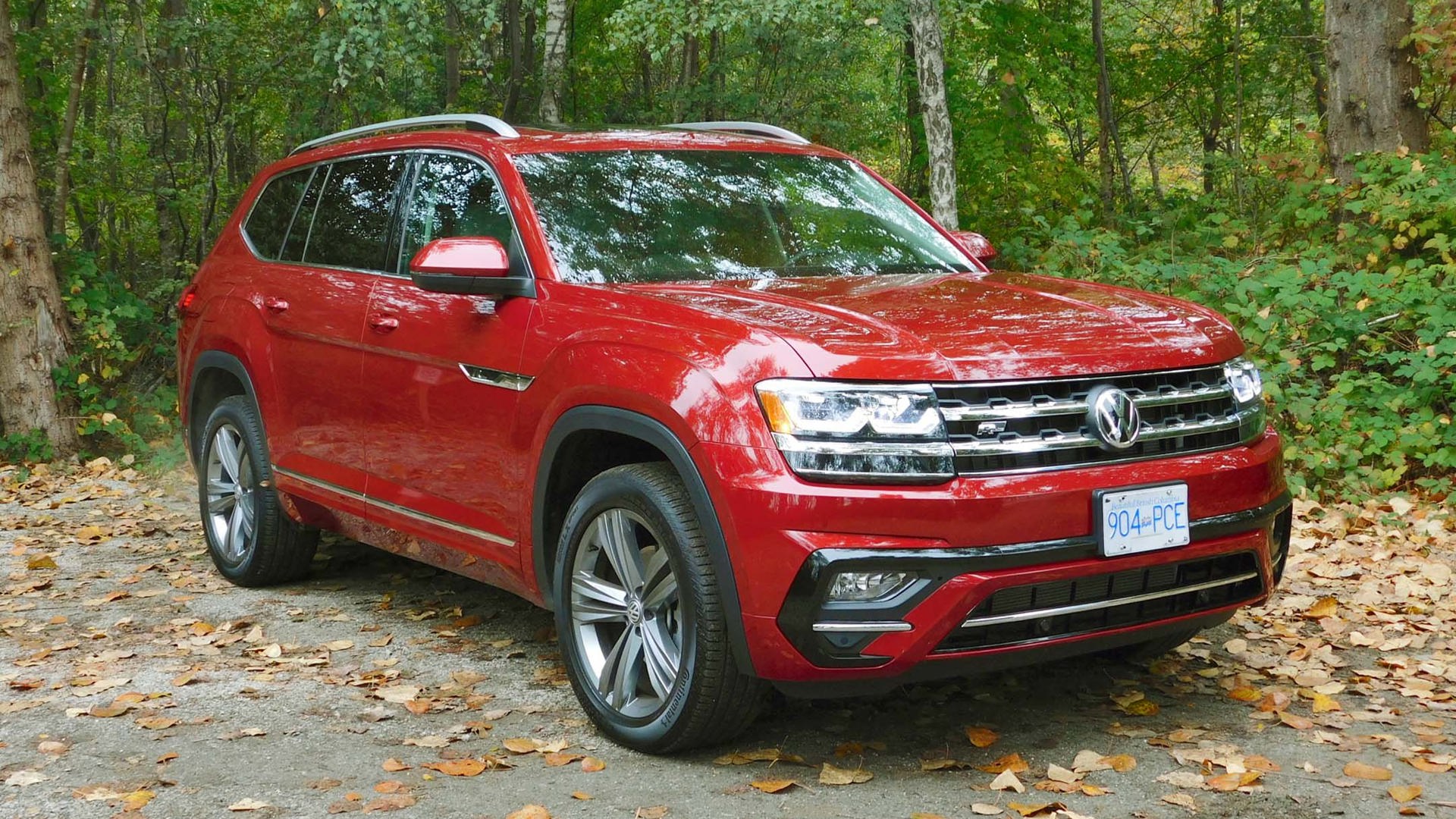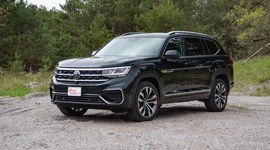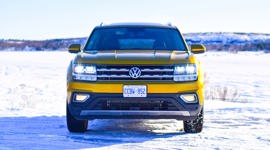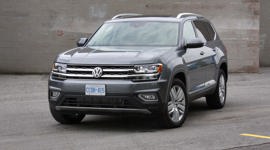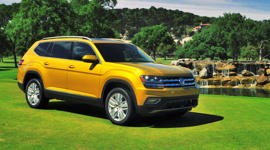Things don’t always go exactly as planned. If anyone knows this, it’s the folks at Volkswagen. What matters, though, is how one responds to a challenge and if the 2018 Volkswagen Atlas SUV is anything to go by, the Wolfsburg company has every intention of putting its best foot forward.
we repeatedly tried to catch the system napping, but the Atlas – fitted with Pirelli winter tires – was never at a loss for grip or propulsion.
So it should’ve come as no surprise that when things didn’t go quite according to plan at VW’s early Atlas preview event, that the PR team simply let the big ute speak for itself, despite uncooperative weather conditions. Nobody expected a deluge of rain in Central Quebec in the winter, but that’s exactly what happened, preventing the planned demonstration of Volkswagen’s fifth generation 4Motion all-wheel-drive system on the frozen Lac Sacacomie from taking place.
Instead, the host team scrambled an alternate route that had our small convoy traveling the picturesque countryside around Saint-Alexis-des-Monts along undulating, frost-heaved secondary roads and some very icy (and muddy) cottage roads, enabling a great demonstration of not only the Atlas’s ability to put power to the ground, but also its handling chops.
The Atlas is a large machine; the biggest VW ever produced in North America (it’s built in Chattanooga, TN) and Volkswagen wants potential buyers to see it as a genuine people mover – or volks-mover, if you will. With a larger footprint than its Japanese-brand rivals (Honda Pilot, Toyota Highlander and Mazda CX-9), the Atlas is about as long as a Ford Explorer. Despite being slightly narrower than the Ford, the Volkswagen makes better use of its space, allowing for what’s expected to be best-in-class cargo capacity when official specs are revealed soon. Subjectively, it is huge inside, and even with the third row seat up, there is still ample cargo room.
Volkswagen is proud of the fact that any of its seven seats can comfortably accommodate an adult, making, what they believe to be a genuine alternative to not only the other seven-passenger mid-size SUVs in the class, but minivans too. And unlike the re-badged Dodge Caravan Volkswagen tried to pawn off on buyers before, the Atlas is an all-new machine fully developed by VW.
With its tall, imposing grille and squared-off shapes flexing from its flanks, the Atlas has an appropriate muscular and masculine appearance, not unlike a larger Jeep Grand Cherokee.
We had an opportunity to drive mid-trim level American SEL models that were plucked from the assembly line and whisked up to Quebec. Canadian market Atlases (Atlii?) will follow the current VW order of Trendline, Comfortline and Highline trims. Fitted with leatherette seats, our test machines bear the unmistakable resemblance of Volkswagen’s current family line up. Materials feel utilitarian if not truly luxurious, but the ergonomics are spot-on with sensible controls and big, round primary gauges. With so much usable interior space and sensible, durable materials, the Atlas feels like it is up to the task of taking the abuses of daily life with a large family without making parents feel like they’re driving a school bus.
Equipment levels will range from utilitarian to rather luxurious with the full suite of VW’s niceties like adaptive cruise control, automated high beam control, lane assist and Volkswagen’s digital cockpit being available on upper trim levels. LED headlights and App Connect (featuring Apple Carplay and Android Auto) are standard on all trims, as is a back-up camera, however Volkswagen regretfully didn’t hide the camera beneath the pop-out logo as they’ve done with the Golf, preventing it from getting dirty; a problem we Canadians know all too well.
In Canada the Atlas will be made available with either a 2.0L turbocharged four-cylinder engine providing 235 hp, or a 3.6 VR6, six-cylinder with 276 hp. All four-cylinder units will be front-wheel-drive, while the V6 will be all-wheel-drive only. We drove only the latter and even when climbing some of the steep grades around Sacacomie, the VR6 had plenty of oomph to haul the Atlas without feeling it was carrying the weight of the world. While the turbo 4-cylinder will make good use of its low-end torque around town, with seven adults aboard, we wonder if 235 hp will be enough.
Power is directed to the drive wheels via an eight-speed automatic that shifts smoothly and swiftly, proving to be a good match for the engine. The fifth generation 4Motion all-wheel-drive system operates in front-wheel-drive until slip is detected, when power is also allocated to the rear. In driving on some very steep and slippery inclines, we repeatedly tried to catch the system napping, but the Atlas – fitted with Pirelli winter tires – was never at a loss for grip or propulsion.
Volkswagen has provided four separate user selection modes for 4Motion including On Road, Snow (softer shifts and a bit of wheel slip from the traction control system), Off Road (late upshifts, hill start assist and descent control and ABS “chock effect”), as well as Off Road Custom that enables customization of which features the driver wants activated. While the Atlas doesn’t have the ground clearance or approach angle to allow for hard core off road driving, the big VW should provide more than adequate capability for anything most family duties will throw at it.
Like the smaller Tiguan and Golf family, Volkswagen has built the Atlas upon a stretched MQB platform. Admirers of the ride and handling balance VW has baked into its other MQB models will be pleased to know the Atlas still feels like a proper European machine, despite VW having no plans to bring it to Europe. It’s a solid, if heavy feeling unit with decent steering feel and body control, even over bumps during cornering, yet the ride is firm but well damped. There’s a feel of handling precision and connectedness in the Atlas that’s absent from most of its wallowing, softly-sprung competitors.
As the current generation Volkswagen Touareg comes to the end of its lifecycle, it will go away from the North American market, being replaced – at least for the time being – by this much larger Atlas and the new, larger Tiguan. Volkswagen hints that the modularity of its MQB platform could very well spawn off alternate versions of the Atlas, including one with a trendy, coupe-like shape.
Pricing for a front-wheel-drive, 4-cylinder Atlas Trendline is set to start at $35,690 in Canada, with the 6-cylinder, 4Motion equivalent ringing in at $39,790, making Volkswagen’s big SUV very aggressively priced against its competitors.
With the Atlas, Volkswagen is offering a high-value and highly-competitive offering in the popular mid-size SUV segment, giving consumers plenty of reason to venture back into its showrooms this summer when it arrives.
